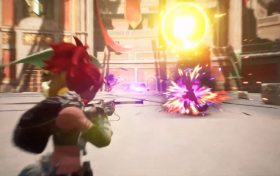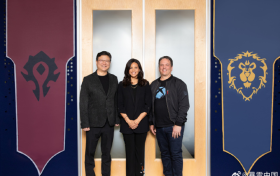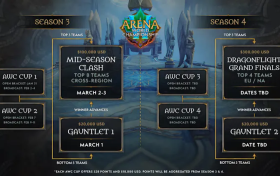2023年4月5日,全球阅读量最大的时政杂志之一《经济学人》周报上刊登了一篇主题为“How AI could disrupt video-gaming”的文章,阐述了AI的飞速发展对电子游戏行业带来的影响,以及各类规模的游戏厂商是如何拥抱这种变化,迎接变革的。
文章表示,电子游戏行业正在迎来AI的浪潮,游戏中越来越多的使用生成式AI来帮助开发,缩短时间和减少预算。各大厂商也纷纷开发自己的AI工具,布局这一领域;除了大型游戏制作公司,小型公司也正在探索AI可能带来的新类型游戏。总体而言,电子游戏行业正在积极应对AI带来的机遇与挑战。
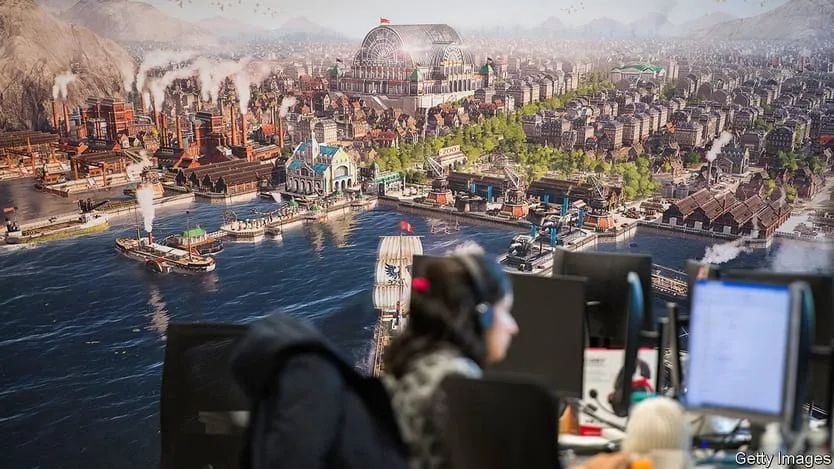
以下内容来自《经济学人》报道:让色彩鲜艳的各个物体在屏幕上高速运动,并不是计算机中央处理器的设计初衷。因此,街机游戏制造商发明了图形处理器(GPU),可以在中央处理器完成工作的同时处理电子游戏的视觉效果。此后,GPU加速处理复杂任务的能力得到了更广泛的应用,包括视频编辑、加密货币挖掘,以及最近大火的AI训练等领域。目前AI正在颠覆一手将它打造出来的行业。娱乐业的方方面面都将受到生成式AI的影响,生成式AI可以将输入的文本、图像、音频或视频吸收整合,行成新的输出。但风险投资公司Andreessen Horowitz认为,游戏将是受影响最大的行业。游戏的互动性要求其中要充满大量精心设计的内容:比如在动作冒险游戏《荒野大镖客2》中,就包含30平方英里的地图以及长达60小时的配乐,而使用AI来帮助制作可以大幅缩短时间和预算。

上个月,在旧金山举行的游戏开发者大会(GDC)上,来自全球的顶级游戏开发者们展示了他们在AI领域的最新技术成果和实践。知名大作《刺客信条》的开发商育碧推出了一款名为Ghostwriter的工具,可以为游戏中的角色生成对话。美国DIY游戏平台Roblox也发布了一款AI工具,能够根据文本指令来生成游戏素材,还能帮助程序员自动生成代码。几周前,Straight4 Studios公布了一款全新的赛车游戏《GTR Revival》,在这款游戏中,AI可以为玩家提供个性化的赛车解说。
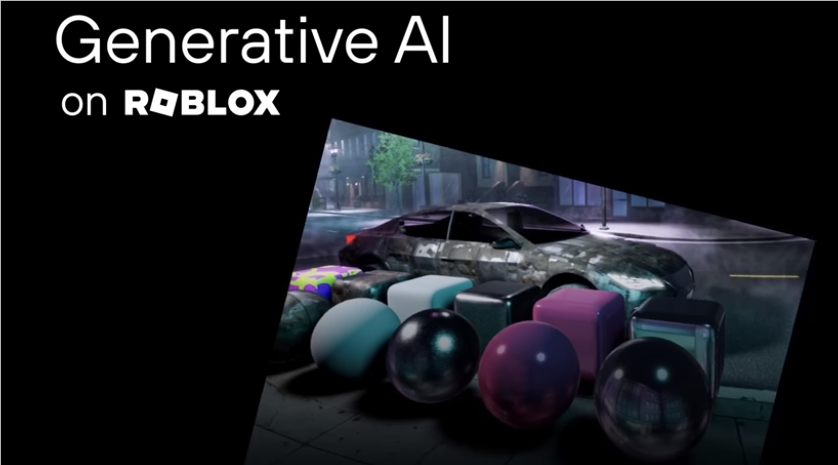
热门手游《糖果传奇》的开发商King工作室的技术主管Steve Collins认为,AI代表着“机遇的爆发”。去年King收购了一家名为“Peltarion”的人工智能公司,旨在利用AI来衡量游戏关卡的难度。Collins表示:“这就像有100万名球员任你支配”。今年,另一家大型游戏开发商EA,以及谷歌都申请了在游戏测试中使用AI的专利。游戏引擎商Unity还计划为开发者提供一个AI工具交易的市场,其AI部门主管Danny Lange表示,希望AI能为所有创造者打造一个更平等的竞争环境。
制作游戏已经比以前变得容易了:去年在游戏平台Steam上发布了近1.3万款游戏,几乎是2017年的两倍。游戏行业可能很快就会像音乐和视频行业一样,例如Spotify或YouTube上的大多数新内容都是用户生成的。一位游戏行业高管预测,小型公司将最快发掘出AI可能带来的新类型游戏。上个月,英特尔高管Raja Koduri离职,创立了一家人工智能游戏初创公司。
但是大型游戏工作室也不可忽略。游戏风投公司Konvoy的Josh Chapman认为,如果那些大型游戏厂商一年能推出更多高质量的游戏,而不是少数几款,这可能能够减少他们业务受热门产品驱动的现状。更多的选择也对那些拥有大量营销预算的公司更有利。而对于围绕AI日益增多的版权问题,巨头们或许也会有更好的答案。如果游戏开发商必须得获得版权,才能使用用于训练生成模型的数据,那么那些拥有大量游戏作品的公司会比初创公司更有优势。曾参与《堡垒之夜》等游戏制作的艺术家Trent Kaniuga曾表示,一些客户已经更新了合同,禁止使用AI来生成艺术作品。
如果律师不干预的话,工会可能会介入。游戏工作室都委婉地将AI助手称为“副驾驶员”,而不是人类的替代者。不过,今年3月份,包括游戏编剧在内的美国作家协会(Writers ‘ Guild of America)表示,”抄袭是AI生成内容的一个特点”。不满的创作者们可能也会对AI按下暂停键。
以下为《The Economist》报道原文:Business | Game change
How AI could disrupt video-gamingGamemaking is especially laborious—and especially ripe for automationApr 5th 2023Flinging brightly coloured objects around a screen at high speed is not what computers’ central processing units were designed for. So manufacturers of arcade machines invented the graphics-processing unit (gpu), a set of circuits to handle video games’ visuals in parallel to the work done by the central processor. The gpu’s ability to speed up complex tasks has since found wider uses: video editing, cryptocurrency mining and, most recently, the training of artificial intelligence.ai is now disrupting the industry that helped bring it into being. Every part of entertainment stands to be affected by generative ai, which digests inputs of text, image, audio or video to create new outputs of the same. But the games business will change the most, argues Andreessen Horowitz, a venture-capital (vc) firm. Games’ interactivity requires them to be stuffed with laboriously designed content: consider the 30 square miles of landscape or 60 hours of music in “Red Dead Redemption 2”, a recent cowboy adventure. Enlisting ai assistants to churn it out could drastically shrink timescales and budgets.Gamemakers showed off their latest ai tricks at the Game Developers Conference in San Francisco last month. Ubisoft, a French developer of blockbusters such as “Assassin’s Creed”, unveiled Ghostwriter, a tool that generates dialogue for in-game characters. Roblox, an American platform for diy games, launched one that draws materials from text commands, like “stained glass”, and an autocomplete helper for programmers. A few weeks earlier Straight4 Studios previewed a new driving game, “gtr Revival”, with personalised racing commentary delivered by ai.ai represents an “explosion of opportunity”, believes Steve Collins, technology chief of King, which makes “Candy Crush Saga”, a hit mobile game. King, which bought an ai firm called Peltarion last year, uses ai to gauge levels’ difficulty. “It’s like having a million players at your disposal,” says Mr Collins. This year Electronic Arts, another big gamemaker, and Google both received patents for using ai in game testing. Unity, a game-development “engine”, plans a marketplace for developers to trade ai tools. Danny Lange, Unity’s head of ai, hopes it will “put creators of all resource levels on a more equal playing-field”.Making a game is already easier than it was: nearly 13,000 titles were published last year on Steam, a games platform, almost double the number in 2017. Gaming may soon resemble the music and video industries, in which most new content on Spotify or YouTube is user-generated. One games executive predicts that small firms will be the quickest to work out what new genres are made possible by ai. Last month Raja Koduri, an executive at Intel, left the chipmaker to found an ai-gaming startup.Don’t count the big studios out, though. If they can release half a dozen high-quality titles a year instead of a couple, it might chip away at the hit-driven nature of their business, says Josh Chapman of Konvoy, a gaming-focused vc firm. A world of more choice also favours those with big marketing budgets. And the giants may have better answers to the mounting copyright questions around ai. If generative models have to be trained on data to which the developer has the rights, those with big back-catalogues will be better placed than startups. Trent Kaniuga, an artist who has worked on games like “Fortnite”, said last month that several clients had updated their contracts to ban ai-generated art.If the lawyers don’t intervene, unions might. Studios diplomatically refer to ai assistants as “co-pilots”, not replacements for humans. But workers are taking no chances. The Writers’ Guild of America, whose members include game scriptwriters, said in March that “plagiarism is a feature of the ai process.” In Hollywood, it is threatening strikes. Upset creatives may press pause on the games business, too.原文链接:
https://www.economist.com/business/2023/04/05/how-ai-could-disrupt-video-gaming

